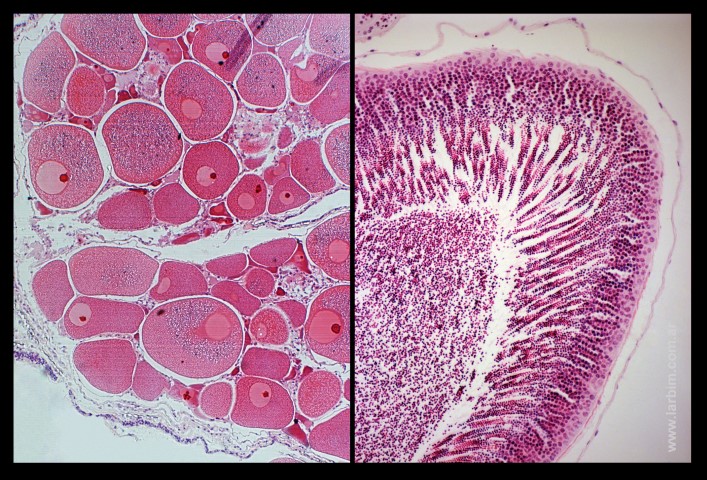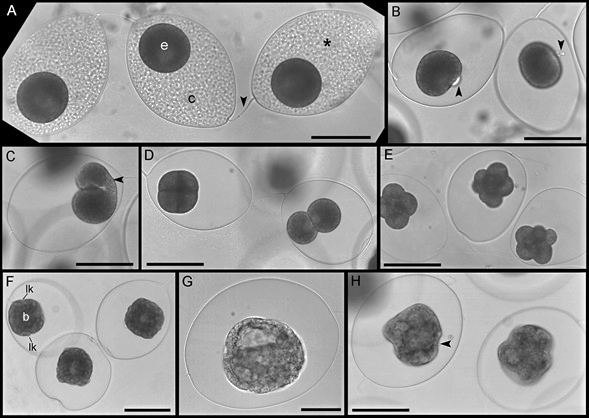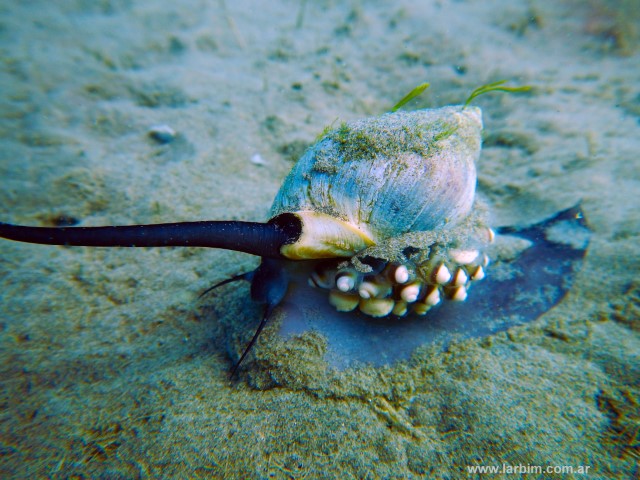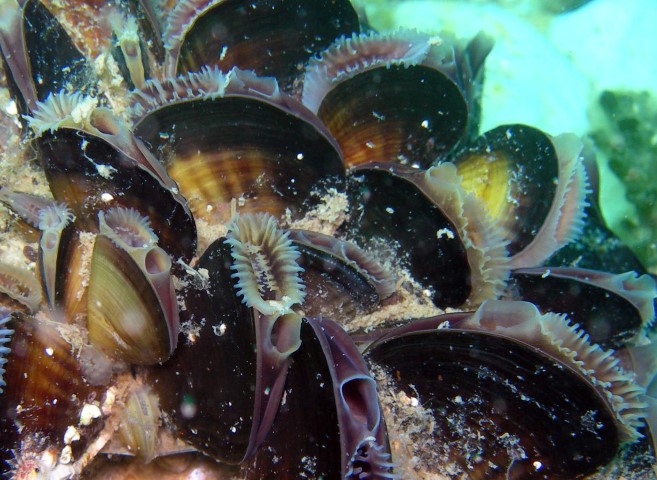Reproductive and development biology
BIRD

Reproduction and early developmental stages of living organisms determine the success of offspring and survival of species. Marine invertebrates’ reproduction is particularly interesting due to the multiple habitats and environmental conditions in which they inhabit, and aspects of their biology lead to a broad variety of reproductive modalities. Marine invertebrates exhibit complex life cycles that may include: external or internal fertilization, development through lecitotrophic or planctotrophic larvae, and even species with direct development (within egg capsules), as well as incubation or parental care.
Strong components of the studies we carry out at LARBIM are focused on reproduction and development of marine invertebrates. Currently, the main taxonomic groups we study are mollusks, echinoderms and nemerteans. Our studies cover behavioral features such as mating and egg laying, embryonic and larval development, fecundity, nutrition modalities of embryonic stages, parental care, seasonality and reproductive maturity (gametogenic and behavioral). We also study the relationship between reproductive features of marine invertebrates and environmental parameters (physical, chemical and biological), in a variety of extreme and diverse habitats, such as intertidal and shallow subtidal Patagonian shores, abyssal depths and sub-Antarctic waters.
We study reproductive aspects of commercially exploited species, providing valuable information on the conservation state of each species and contribute to the potential management measures needed for a sustainable use of these resources. Another area of interest in our group is the effect of contaminants on the reproduction of marine invertebrates at individual and population scales. This research implies a variety of approaches such as histology, anatomical and morphological studies of organs (gonads, secondary sexual structures) and early developmental stages (larvae or embryos), as well as aquarium experiments.
The study of reproduction and development of marine invertebrates and their relationship with other features within benthic ecosystems is particularly interesting for the integrative approach we promote at LARBIM.
Researchers: Dr. Andrés Averbuj, Dr. Martín Brogger, Dr. Soledad Zabala and Dr. Gregorio Bigatti.

Patagonia Argentina

Bvd. Brown 2915 (U9120ACD)
Puerto Madryn, Chubut - Argentina
Tel.: +54 (0280) 488-3184 int 1329
https://www.larbim.com.ar


